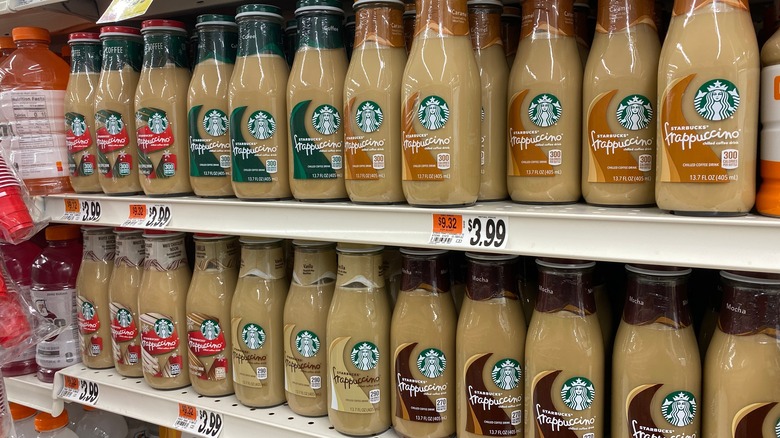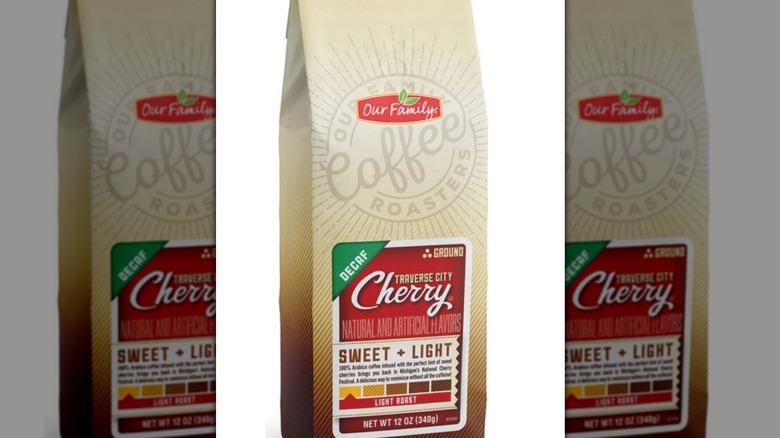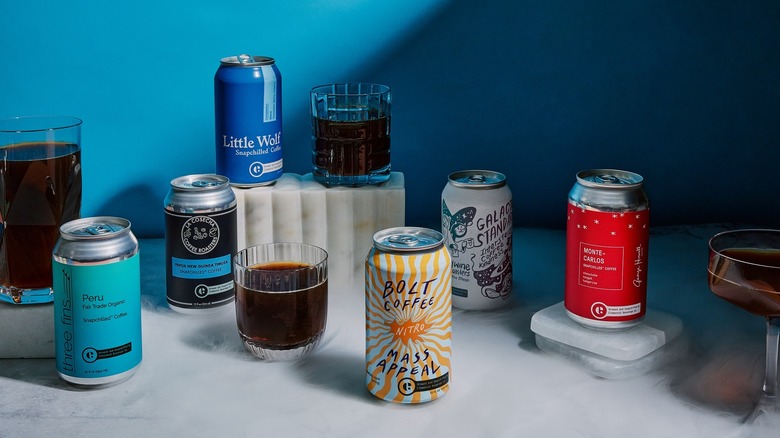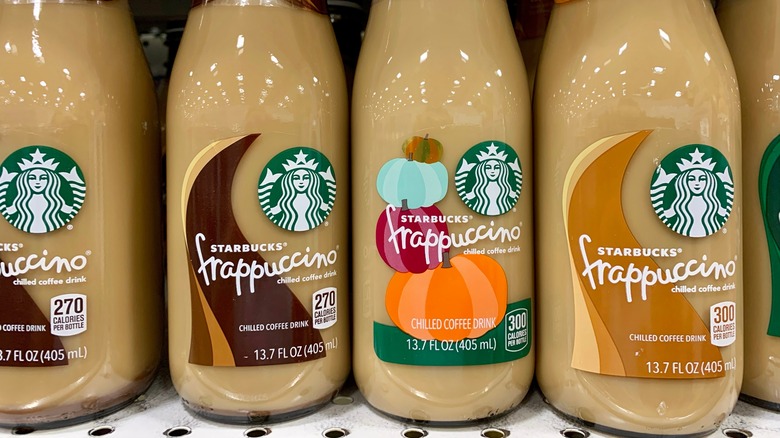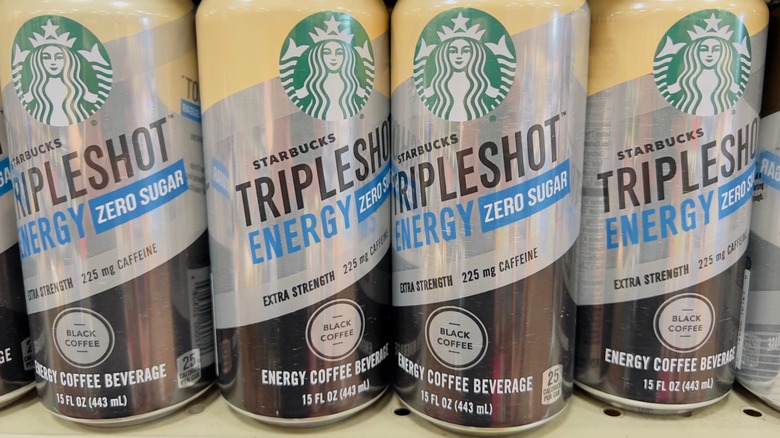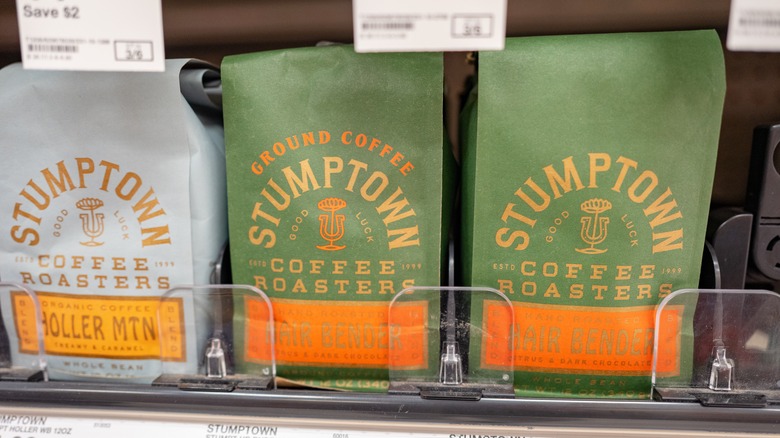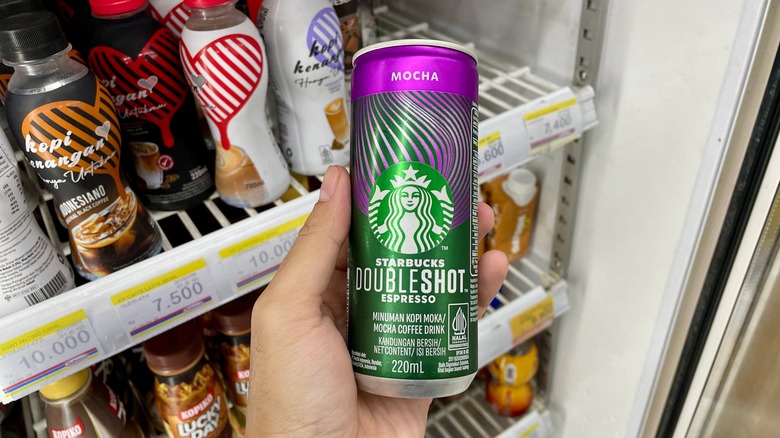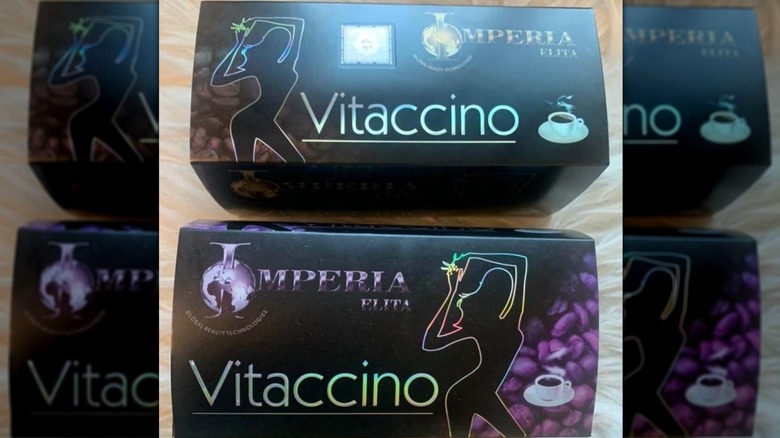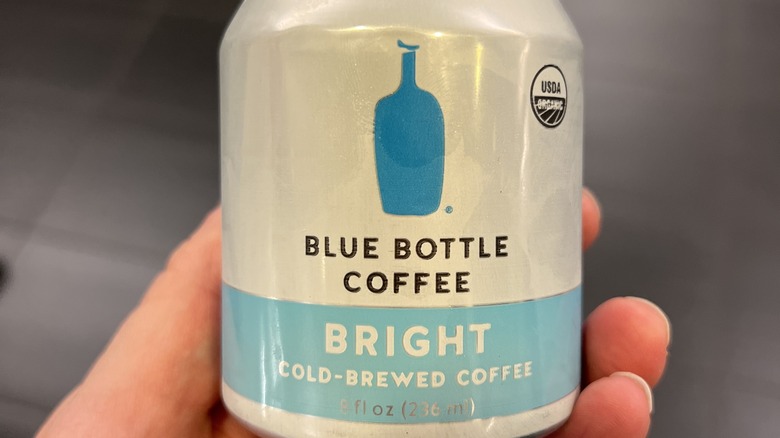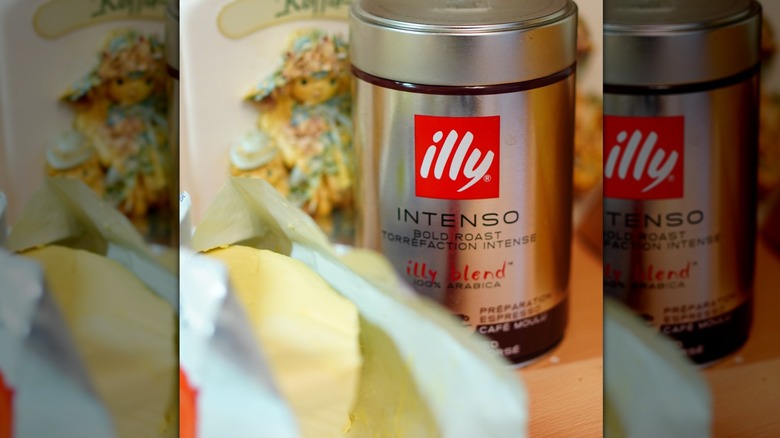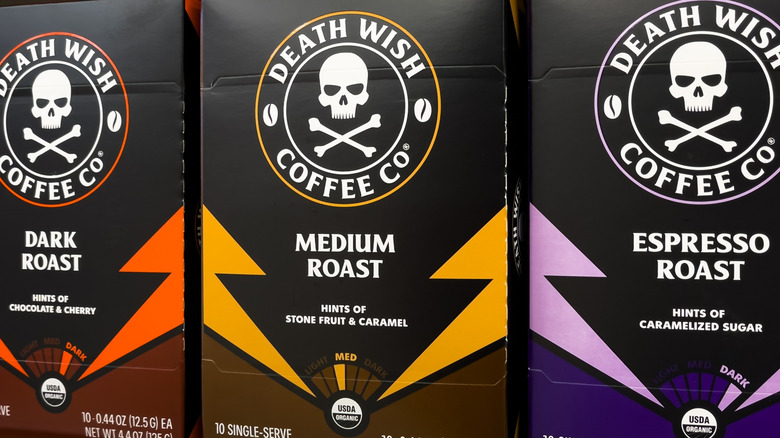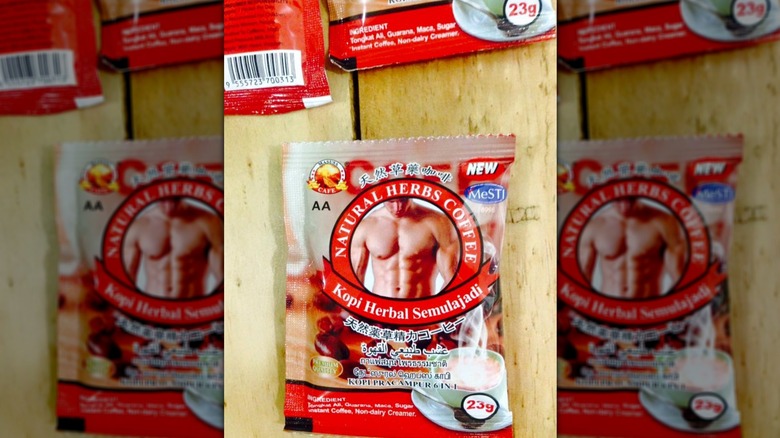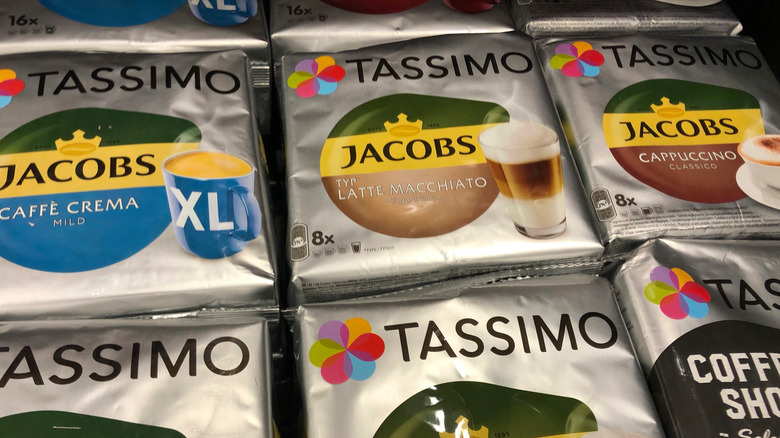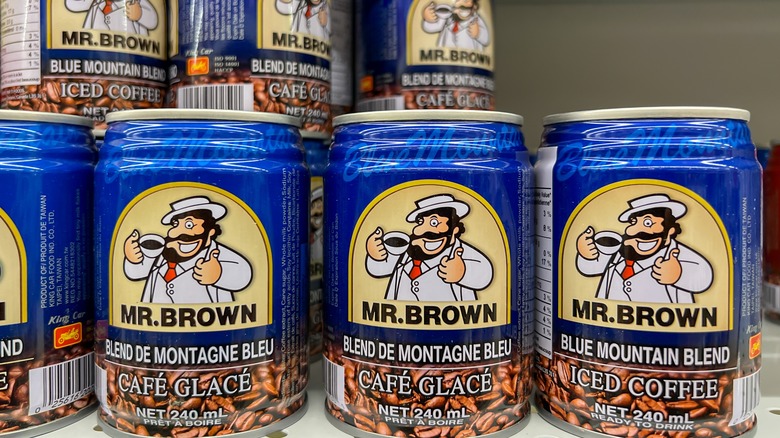Coffee Recalls That Affected Millions
Your morning cup of joe is probably an indelible part of your routine. It is something that you do not even think about; you just make it. You get up, turn on your coffee maker, let it do its thing, pour a cup, and go about your day, sipping at that sweet bean water. If you do not give your daily caffeine fix a second thought, though, you might just start to once you realize how often coffee is recalled and the many, scary, varied reasons why it is recalled.
No coffee is safe. Whether it is a packaged, ready-to-drink coffee-based beverage, or coffee grounds or beans, coffee has been recalled many, many times over the last decade or so, for frightening reasons such as foreign objects being found in the bottles, coffee containing potentially deadly bacteria, and even coffee containing risky, drug-related substances. Save yourself from injury or worse by paying attention to recalls as they show up in the news, but also apprise yourself of the various risks that exist, by checking out these major coffee recalls that affected millions in recent history.
Our Family's coffee recalled due to incorrect labeling (2025)
In March 2025, the U.S. Food and Drug Administration (FDA) issued a recall for Our Family Traverse City Cherry Artificially Flavored Decaf Light Roast Ground Coffee. Turns out, the coffee grounds in each 12-ounce bag were not actually decaffeinated. While this may not seem like a big deal to some, the FDA classified the recall as a Class II recall. This classification means that the organization deems a product possible of causing temporary or reversible health issues, if not necessarily death. In this instance, the risk particularly applies to those who are more sensitive to caffeine, such as young adults or pregnant individuals, or those who may not need to drink caffeine due to potential interactions with other substances in their systems, such as alcohol, ephedrine, theophylline, or echinacea. If at-risk individuals drink caffeinated coffee or too much caffeine, it can cause adverse health effects and increase risk of issues such as heart attack, stroke, or seizure.
At the time of the recall, the product was still on store shelves in 15 different states — including Colorado, Iowa, Illinois, Indiana, Kansas, Kentucky, Michigan, Minnesota, North Carolina, North Dakota, Nebraska, Ohio, South Dakota, Wisconsin, and Wyoming. There were more than 4,000 bags of the mislabeled coffee in circulation.
Snapchill coffee recalled due to botulism (2024)
In 2024, Snapchill issued a huge recall impacting more than 250 canned coffee products being sold under a wide range of brand names. The products had been distributed all over the country. The reason? It was discovered that the manufacturer's canning processes could potentially lead to the growth and production of deadly toxins that can cause botulism in unlucky consumers.
Botulism is certainly nothing you want to mess around with, either. This rare but serious form of food poisoning does not just cause a few days of gastrointestinal distress, like you might expect with some varieties of food poisoning. Instead, the toxin heads for your nervous system, causing symptoms that go above and beyond gastrointestinal distress to include muscle weakness, vision issues, slurred speech, and eventually trouble moving the muscles in your face and then chest, meaning you will not be able to breathe, leading to death. Botulism can be treated with an antitoxin, but the antitoxin cannot reverse damage already caused by botulism and immediate treatment is necessary. At the time that the recall was issued, thankfully, no consumers had reported any ill effects.
Frappuccinos recalled due to foreign objects (2023)
No one wants to be drinking a smooth, creamy bottle of Starbucks Frappuccino, only to find that there is something, well, crunchy, in their beverage. It is even worse if that foreign object is glass. That was the concern when Starbucks recalled 25,200 cases of vanilla Frappuccino in 2023 (at 12 bottles per case, that is more than 300,000 bottles of Frappuccino). These products were not being sold in Starbucks stores, but at nationwide retailers including Walmart (which has seen its own fair share of recalls), Safeway, and Target.
When analyzing the risk that this recall posed, the FDA gave the recall a Class II classification, meaning that temporary or reversible health issues could result from drinking the coffee — but we would have to argue that drinking a coffee full of broken glass could probably be considered a little more serious a risk than that. Unfortunately, this would not be the only recall that Starbucks issued for its bottled coffee beverages during this time period, with several other recalls occurring between 2020 and 2023.
Starbucks Triple Shot beverages recalled due to metal fragments (2022)
The year before Starbucks worried consumers might find glass shards in its Frappuccinos, the brand was concerned shoppers could discover metal fragments in their Vanilla Espresso Triple Shot canned beverages. This time, though, the number of impacted beverages was at least smaller. The affected refrigerated canned drinks had been distributed to stores in seven states, including Arkansas, Arizona, Illinois, Indiana, Florida, Oklahoma, and Texas, and approximately 221 cases were impacted, for a total of about 2,600 cans. Again, though, the FDA ranked this recall only as a Class II recall, even though drinking a beverage with metal shards sounds like something that could definitely cause some serious damage.
It is unfortunately not uncommon for foreign objects like glass, metal, or plastic to make their way into food items, resulting in recalls. And it is not just materials like these that you would expect to see in a manufacturing plant that end up in your food. In past recalls, other foreign materials that have wound up in food items have included insects and even rocks.
Stumptown coffee recalled due to microbial contamination (2022)
In 2022, Stumptown Coffee Roasters recalled a variety of ready-to-drink coffee beverages due to microbial contamination. Typically, when a food recall is related to some sort of microbial contamination, the root cause is a bacteria like salmonella, e. coli, or listeria. In this instance, though, the contaminant was a lesser-known culprit: Cronobacter sakazakii.
So what exactly is it? This is a pretty common germ that you can find in your own kitchen or living room, but, under the right circumstances, it can be risky. It is particularly a hazard to young children and those with weakened immune systems and, under worst circumstances, it can cause sepsis or meningitis, and then death. The bacteria thrives in low-moisture, dry foods.
At the time of recall, Stumptown Coffee Roasters clarified that the brand was not the only one to suffer from this contamination. The brand's packager, Lyons Magnus, was supposedly the root of the issue, and the overall Lyons Magnus recall impacted a large number of ready-to-drink beverages from other brands as well, including Ensure, PediaSure, Oatly products, and more.
Starbucks DoubleShot Espresso drinks recalled due to inadequate sealing (2021)
Another instance of Starbucks needing to recall one of its ready-to-drink, sold-in-stores beverages, in 2021, the brand issued a recall of its Starbucks Doubleshot Espresso canned beverages. The recall impacted three flavors and more than 250,000 cases of the drinks. This time, the issue was not foreign objects potentially lurking inside the can. Instead, there was a problem with the canning process, leading to inadequate sealing. Due to the inadequate seals, it was theorized that the milk in the drinks would spoil faster than anticipated, meaning consumers could not trust the best-by dates on the cans.
While drinking a little spoiled milk may not kill you, it is definitely not going to be a fun time if you drink enough to experience gastrointestinal stress. While spoiled milk is often easily identifiable by its off-putting smell, the recalled espresso beverages' strong flavorings — including Espresso & Cream, Espresso & Light Cream, and Espresso & Salted Caramel Cream — could have very well masked this tell-tale aroma.
Dash Xclusive recalls products containing controlled substances (2021)
You may not be all that familiar with Dash Xclusive's Imperia Elita Vitaccino Coffee, but the widely distributed product, sold nationwide online, including via Ebay, was thoroughly and entirely recalled — yes, that is all lots, every product sold — in 2021. The FDA found that the product, which was sold as a performance coffee-based beverage, contained several undeclared, controlled substances, including sibutramine and fluoxetine, more commonly known as Meridia and Prozac, an SNRI and SSRI.
While you likely know the latter as a common antidepressant, the former is an appetite depressant that was removed from the market in 2010, due to the cardiovascular risks that the drug posed. Obviously, consumers taking any pharmaceutical without their explicit knowledge is a bad thing, and you are unlikely to expect something like Prozac in your morning coffee, even if it is sold as a performance-enhancing drink.
Meanwhile, the coffee itself did not list either of these substances in its ingredients list, instead naming the following: hunger-obliviongrass, Griffonia simplicifolia, immature orange extract, instant African coffee MoyoJava, sugar, maltose, laktose, and fructose. Note that there is no such thing as "hunger-obligiongrass."
Blue Bottle Coffee recalls injury-causing cans (2019)
When we think of food-related recalls, we often think that the product probably is not going to harm us unless we actually eat it — but that is not the case with this recall. In 2019, Blue Bottle Coffee issued a recall for all cans of its coffee, nearly 200,000 units. The reason? It was reported that opening the cans had caused some consumers injury, as the lid pops off unexpectedly quickly, sending beans flying and resulting in laceration. At the time of recall, more than a dozen consumer issues had been reported. The impacted cans of coffee had been sold online, via Amazon, as well as at Target and Whole Foods Market, among other in-person retailers.
Sadly, these dangerous cans are part of what made the brand stand out at the time. The specially designed cans — which featured a pop-tab top, similar to a can of soda — were intended to increase a coffee's lifespan significantly, while also being environmentally friendly.
Illy recalls coffee due to injury risk (2018)
A similar recall was issued in 2018 when coffee company illy recalled approximately 65,000 cans of coffee beans because, the brand said, the coffee bean can lid would open quickly, "with force," putting the consumer at risk of injury, per the U.S. Consumer Product Safety Commission. In this case, the affected cans were potentially missing an air valve on the bottom of the can, which caused the build up of interior pressure. The cans of coffee had been sold nationwide and online via Amazon, and at stores including Target, Whole Foods, Williams Sonoma, Korger, Bed Bath & Beyond, and Shoprite.
While the later, similar Blue Bottle Coffee recall had been associated with reported injuries, the illy recall had not been associated with any consumer injuries at the time of reporting. However, the U.S. Consumer Product Safety Commission, which issued the recall instead of the FDA, said that the cans could open with enough force that they could cause lacerations.
Death Wish Coffee recalls cold brew due to botulism (2017)
Another botulism-related coffee recall occurred in 2017 when Death Wish Coffee Co. issued a recall for cans of its nitro cold brew coffee. It was determined that the coffee company's manufacturing processes could possibly lead to botulin growth, which, when consumed, results in botulism food poisoning. After this discovery, the company stopped all production, promising to find a new, safer processing procedure. The affected cans were sold online and at Price Chopper, Market 32, and other, independent retailers.
In an interview with Drips and Draughts around the time of the recall, Death Wish Coffee Co.'s CEO explained that the brand had been doing a large amount of testing on its nitro cold brew coffees both before and after release to the public. While the coffees all came back as safely tested for some time, eventually, the brand received word from a Cornell researcher that the nitrogen used in the product could contribute to potential heat-resistant mold growth. The Cornell researcher recommended a recall, making this an entirely proactive, rather than reactive, step to protect public safety. To fix the issue, the brand eventually switched to a "retort" production system, which puts the product under pressure and heat for a longer period of time, sterilizing the product and killing heat-resistant toxins.
Bestherbs Coffee recalled due to undeclared ingredients (2017)
In another instance of unanticipated pharmaceuticals showing up in your coffee, in 2017, Bestherbs Coffee recalled one of its products, New of Kopi Jantan Tradisional Natural Herbs Coffee, due to key, undisclosed ingredients, namely desmethyl carbodenafil — something very similar to Viagra. Of a different flavor of worry, possibly, was the fact that the product also included undeclared milk.
In addition to the fact that consumers need to know when they are consuming an ingredient that is going to mimic the effects of Viagra, the FDA also pointed out that the desmethyl carbodenafil could interact with other, common prescription drugs used to treat diabetes, high blood pressure, high cholesterol, and heart disease. The instant coffee was distributed nationwide, online, between 2014 and 2016. Like the later Dash Xclusive coffee that was recalled in 2021, the New of Kopi Jantan coffee had been billed as a performance-enhancing drink. A few other coffees were likewise recalled in 2017 for similarly containing Viagra-like products, including Stiff Bull Herbal Coffee and Caverlo Natural Herbal Coffee.
Kraft coffee pods recalled due to burn risk (2012)
In 2012, Kraft Foods produced something that was not quite a K-cup, but similar. Known as T-Discs, they were made especially for working in Tassimo coffee makers, to produce single cups of espresso-based beverages. In February of that year, the company recalled several types of these discs, including those sold under the Maxwell House and Gevalia brands, citing burn risks. The recall noted that the recalled discs could become clogged during the brewing process and then spray consumers with hot liquid and coffee grounds. The massive recall affected more than 2 million packages in the United States and nearly 2 million packages in Canada.
This was far from the only recall to impact Tassimo, though. Also in 2012, Tassimo's single-cup coffee makers themselves were recalled for the same reason, a burn risk, with nearly 2 million total units impacted across the United States and Canada. At the time of the recall, nearly 40 reports of second-degree burn injuries had come in related to the coffee makers, with injuries in some instances affecting children and requiring hospitalization.
Mr. Brown coffee mix recalled due to melamine contamination (2008)
In 2008, Sunny Maid Corp. recalled its Mr. Brown-branded 3-in-1 and 2-in-1 powdered packets of coffee mixes for a unique reason. No, they were not contaminated by botulism-causing toxins, or bits of metal or glass, as you might expect based on other coffee recalls. Instead, a third-party manufacturer notified Sunny Maid that the coffee mixes could contain melamine.
You might not know what melamine is, but it likely impacts various products that are all around you at any given time. A byproduct of the coal industry and a chemical used in various industrial settings, it is used when making tableware, flatware, plastic products, and paper products. While the FDA considers some degree of melamine contamination safe for human consumption, you do not want to eat it in any large degree and you do not want to microwave food in or on melamine-containing tableware.
In some instances, melamine contaminations have proven fatal. In one case, melamine-contaminated pet food killed more than a thousand pets in 2007. In another, melamine-contaminated infant formula killed six children and impacted nearly 300,000 others.
